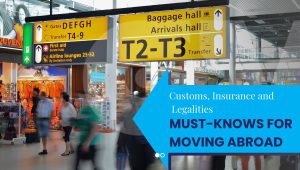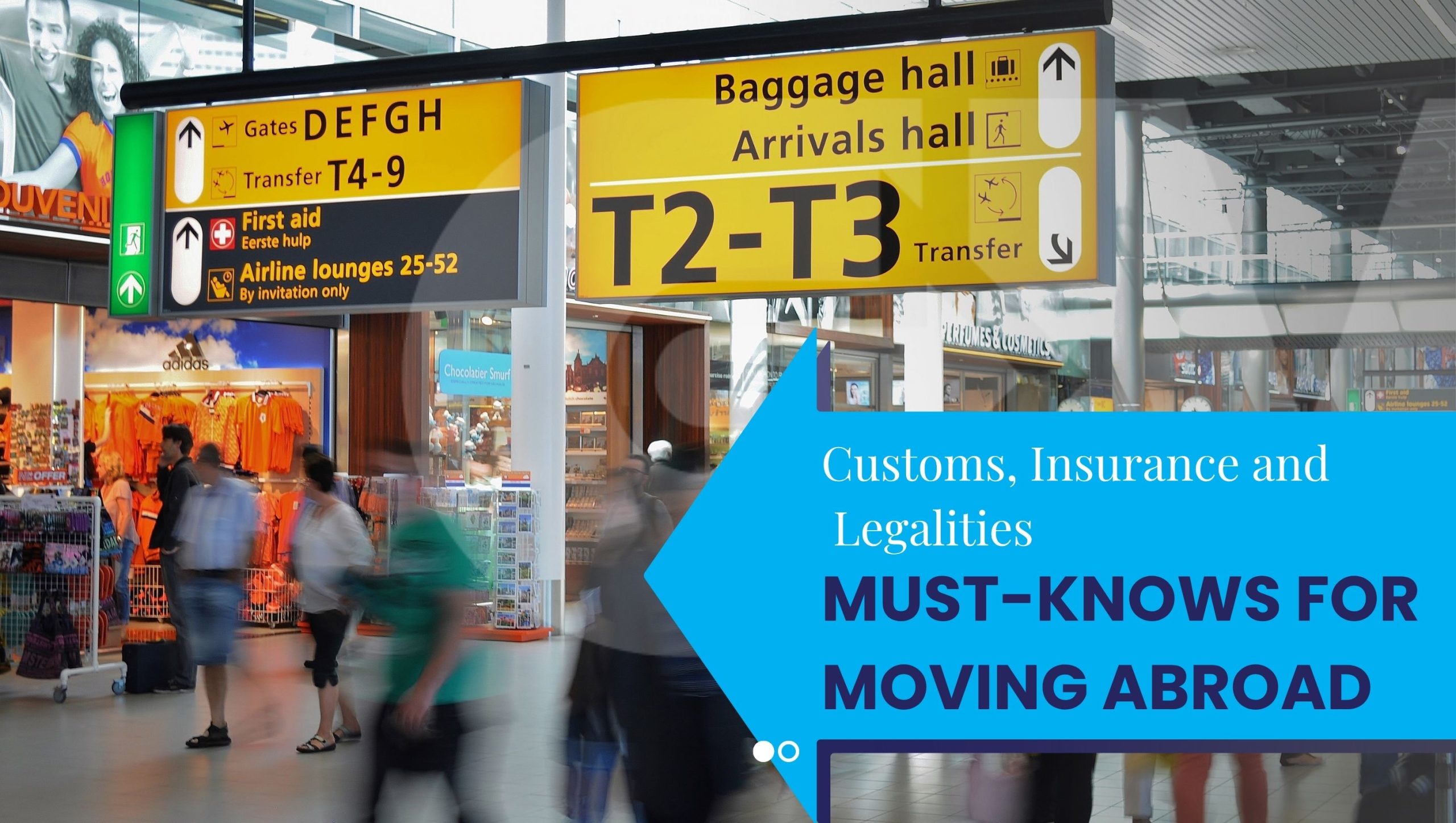
Planning an international move involves more than simply packing your belongings and choosing a new home. There’s paperwork to complete, customs regulations to follow, and insurance to consider, all of which can feel overwhelming if you’re unfamiliar with the process.
At CM Relocation, one of our top priorities is to make your move as seamless and stress-free as possible. That includes simplifying the legal and logistical steps that many people find confusing. In this guide, we break down everything you need to know about customs clearance, moving insurance, and required documentation, so you can feel confident, organised, and in control of your relocation journey.
Demystifying Customs Clearance
What is customs clearance, and why does it matter?
When you move your belongings across borders, they must pass through customs—the official government process that checks, verifies, and either clears or rejects goods entering a country. Each country has its own rules, restrictions, and paperwork requirements, so proper compliance is crucial to avoid delays, fines, or confiscated items.
At CM Relocation, our team handles most of the heavy lifting when it comes to customs, but here’s what you need to know as a client:
What is customs clearance, and why does it matter?
- Passport and visa (if applicable)
- Inventory list of items being shipped – sometimes itemised and valued
- Bill of lading or air waybill
- Customs declaration forms specific to the destination country
- Proof of residence (e.g. work permit, lease agreement, or utility bill at destination)
- Packing list, ideally prepared by a professional moving company
Restricted or Prohibited Items
Some items may be subject to import restrictions, duties, or may be entirely prohibited. These typically include:
- Alcohol and tobacco
- Firearms or weapons
- Certain food items
- Plants, seeds, or soil
- Animal products
- Medication without prescriptions
Always check with your move manager for a destination-specific list of restricted goods. At CM Relocation, we’ll advise you on what’s allowed and ensure the paperwork is completed accurately.
What We Do for You
- Guide you through document preparation
- Liaise with customs authorities on your behalf
- Track and manage clearance status
- Resolve issues or hold-ups quickly
- Keep you informed every step of the way
With our experienced team, customs doesn’t need to be a source of stress.
What Moving Insurance Really Covers
Many people assume that their belongings are automatically covered during a move—but that’s not always the case. Moving insurance is a must for international relocations, where your goods may travel by road, sea, or air, often passing through several handling points.
Types of Cover
There are two main types of moving insurance:
- Total Loss Insurance
Covers your entire shipment in the event of complete loss (e.g. container lost at sea). However, it does not cover damage to individual items. - All-Risk Coverage (also known as Full Replacement Cover)
Offers the highest level of protection, covering individual items that are lost, stolen, or damaged in transit. This is strongly recommended for high-value or fragile shipments.
What’s Typically Covered
- Damage from rough handling or accidents
- Theft or loss during transit
- Breakage, provided items were packed professionally
- Water damage (especially important for sea freight)
- Delays or costs related to shipment issues (in some cases)
What’s Not Usually Covered
- Items you packed yourself (“owner-packed boxes” may be excluded)
- Pre-existing damage
- Prohibited or undeclared items
- Mechanical or electrical failure not related to external damage
- Mould or mildew in certain climates
At CM Relocation, we offer insurance tailored to your needs. We’ll walk you through the available policies, explain the fine print, and help you choose the best cover for peace of mind.
Required Documents for International Moves
In addition to customs paperwork, you may need other legal documents depending on your personal situation and destination. These ensure your move complies with local laws and helps you access essential services after arrival.
Commonly Required Documents
- Passport and visa for all family members
- Work permit or employment contract if moving for a job
- Residence or tenancy agreement at your new address
- Power of attorney if someone else is handling your shipment
- Vaccination records (especially when moving pets)
- Marriage or birth certificates, if relocating with dependants
- School records, if you’re enrolling children in local schools
Keep both physical and digital copies of all documents. It’s also helpful to store them in a secure, easily accessible travel folder during your move.
CM Relocation Can Help You:
- Compile a personalised documentation checklist
- Assist with notarisation, translation, or legalisation of documents
- Liaise with destination country representatives (if needed)
- Provide reminders to ensure nothing is missed before shipping
Legalities and logistics might not be the most exciting part of moving—but they’re some of the most important. Navigating customs, insurance, and documentation correctly ensures that your belongings arrive safely, your entry into the country goes smoothly, and your peace of mind stays intact.
At CM Relocation, we make these complex processes feel simple. From managing customs declarations to helping you understand your insurance cover, our team is here to guide you every step of the way.
Planning an international move? Let CM Relocation handle the details so you can focus on the journey ahead.
